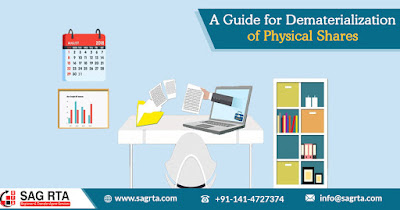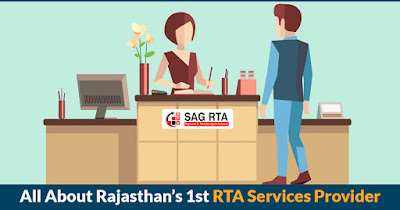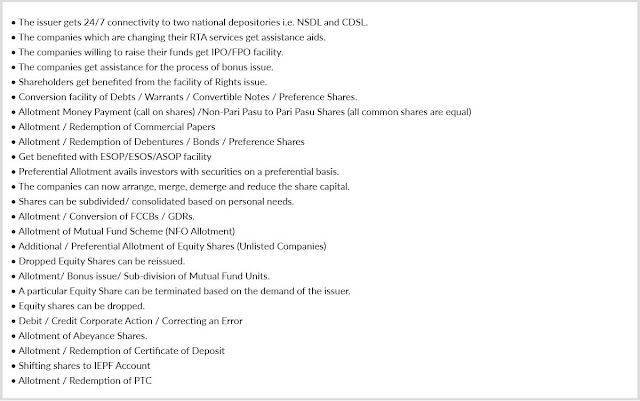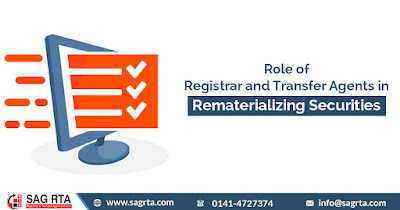When a company looks to raise capital, share allotment and share issue serves as two major criteria for it. The primary difference between allotment and issues of shares is such that the process of allotment is the method of share distribution within the company whereas the issues of share enable a company to dilute its equity by offering its shares to general public or shareholders, who can later hold them or transfer to another investor.
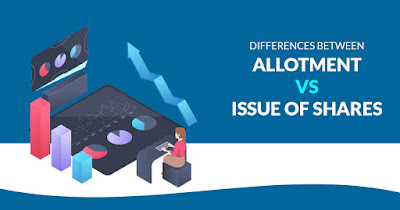
What Does It Mean By Allotment of Shares?
The process of allotment refers to the distribution of shares among the interested shareholders either through a lottery scheme or some type of algorithm for allotment. The allocation process also decides the overall composition of the shareholding among investors, which is also helpful in determining the bargaining power (majority or minority) of shareholders.
Three most popular types of Allotment of Shares process that are commonly practised by companies include:
Share Allotment via Initial Public Offering (IPO)
When a company is listed on a stock exchange by doing an IPO and starts trading shares to the general public. A large number of investors, i.e., the general public gets involved in such kind of share allocation process, unlike a very limited number of private investors in a company.
Allotment via Rights Issue or Bonus Issue
When shares are allocated among the existing shareholders of a company as opposed to the new ones. In case of rights issues, shares are generally offered at a discounted price to shareholders by the company. On the other hand, in case of a bonus issue, shares are allocated to existing shareholders instead of dividend payment.
Bulk Share Allotment to individual or Institution
Companies can also issue shares to a particular selected party like an institutional shareholder, venture capital firm or business angel. Such type of allotment generally results in a change of ownership status since a bulk amount of shares are distributed.
What Does It Mean By Issue of Preference Shares?
A legal transfer of ownership of the shares by a company to its investors is known as the issues of shares. Once a company issues shares to investors, then it is at the hand of investors completely whether they want to hold their shares or transfer their ownership by selling the shares to other investors.
Initially, when a company gets incorporated, a number of its shares are issued which is dependent upon a number of factors. A legal document called ‘Prospectus’ is used to specify all relevant information related to the issue of shares. Companies can also seek professional advice to decide how much shares they wanted to issue to the public.
Authorised Share Capital
Authorized share capital is also known as the registered share capital. This is the maximum amount of capital that a particular company is allowed to raise from the public via the issue of shares. The registered share capital of a company should also be mentioned in the Certificate of Incorporation, which is a legal document to declare the formation of a company. During a single issue, the entire number of authorized shares cannot be issued by the company.
Dilution of Control
Once shares are issued to the general public during an IPO event, then become shareholders of the company. This can also result in a change in the ownership structure of the firm. Hence, it is at the hand of existing owners of the firm how much control they want to forgo by deciding the number of shares that are issued during an IPO event.
The price at which shares are issued is equally important as the number of shares issued during an IPO event. The pricing should be attractive so that prospective investors can purchase it without sending any negative signals into the market. Companies operating in a high growth market with a unique product can put their share prices high as opposed to ones operating in a competitive market.
Structure of The Company
The private or public structure of the company also affects the number of shares that can be issued. Regulations for issuing shares are minimum for private companies whereas in case of public companies a nominal value is specified which must be at least £50,000 of the issued share capital.
Funding Requirements And Company Size
Large scale companies have more funding or capital requirements when compared to small ones. Furthermore, when a company is well established, it can easily attract more funding since investors are more willing to put their money in already established corporate entities for getting more profits.







